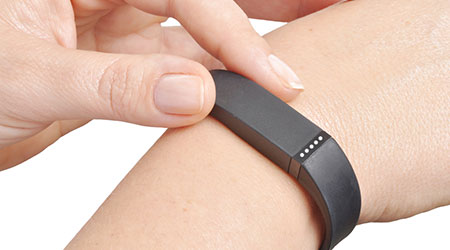A considerable number of studies have documented that when patients have options or choices, it reduces stress and enables them to feel more in control, according to an article from Building Operating Maintenance on the FacilitiesNet website.
It is likely that we will start to see mobile app-based interfaces and tablets allowing patients to control elements as basic as room temperature, in-room dining, entertainment options, treatment sessions, and so on.
The impact wearables will have on the physical space remains to be seen, but it doesn’t take much to imagine what happens to the design of a facility if monitoring devices can be worn by patients.
Biosensors are emerging wearable medical devices that differ from wrist trackers and smartwatches. The Philips' wearable biosensor is a self-adhesive patch that allows patients to move around while collecting data on their movement, heart rate, respiratory rate, and temperature.

 Healthcare and Resilience: A Pledge for Change
Healthcare and Resilience: A Pledge for Change Texas Health Resources Announces New Hospital for North McKinney
Texas Health Resources Announces New Hospital for North McKinney Cedar Point Health Falls Victim to Data Breach
Cedar Point Health Falls Victim to Data Breach Fire Protection in Healthcare: Why Active and Passive Systems Must Work as One
Fire Protection in Healthcare: Why Active and Passive Systems Must Work as One Cleveland Clinic Hits Key Milestones for Palm Beach County Expansion
Cleveland Clinic Hits Key Milestones for Palm Beach County Expansion